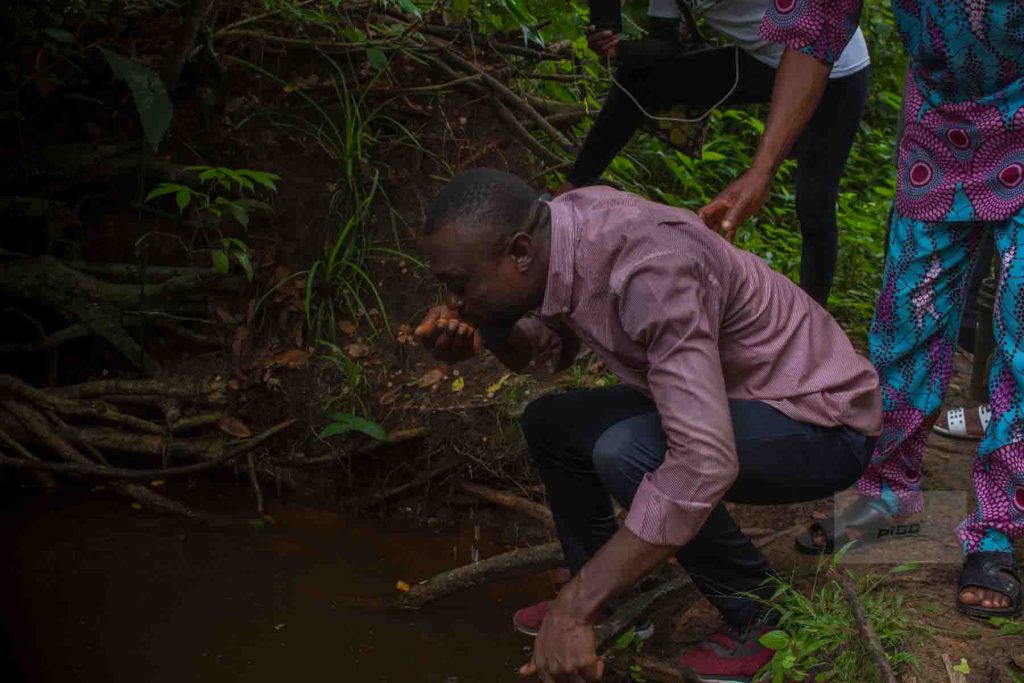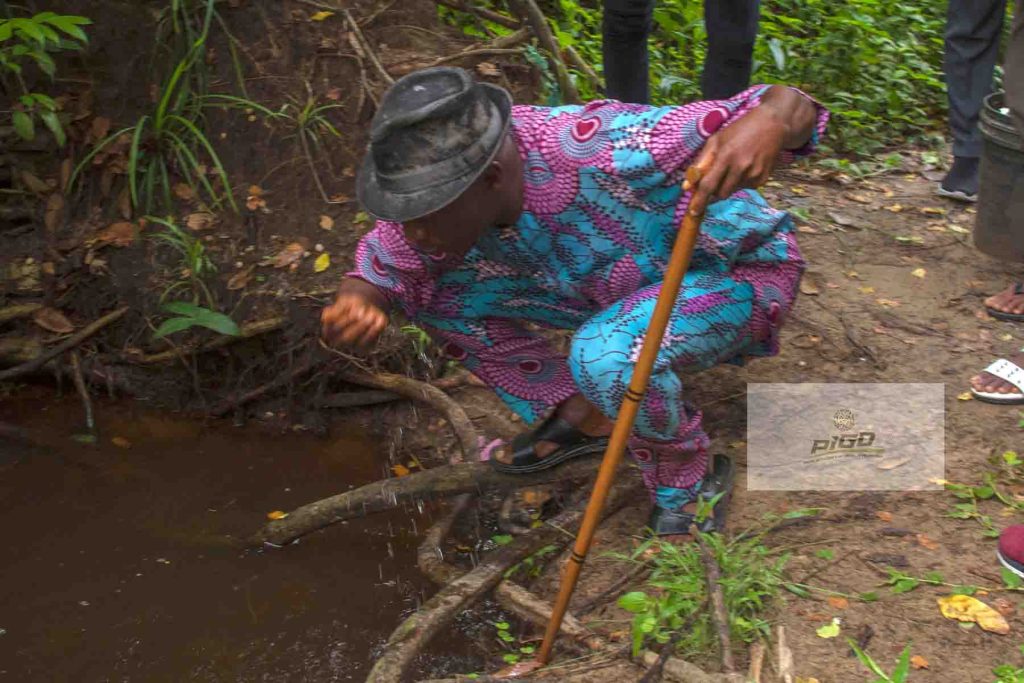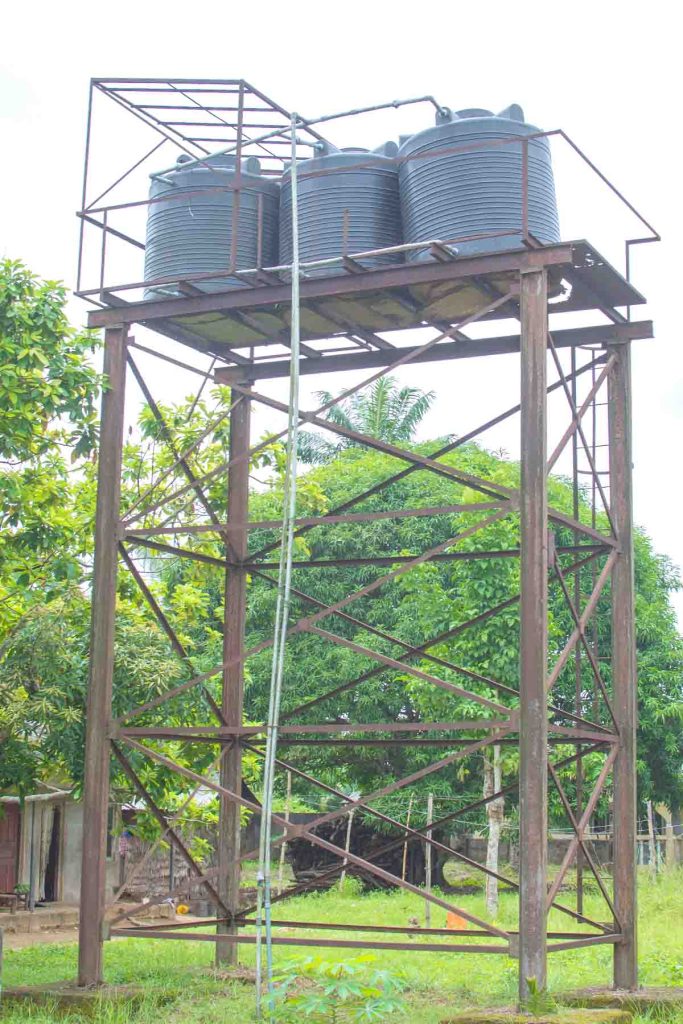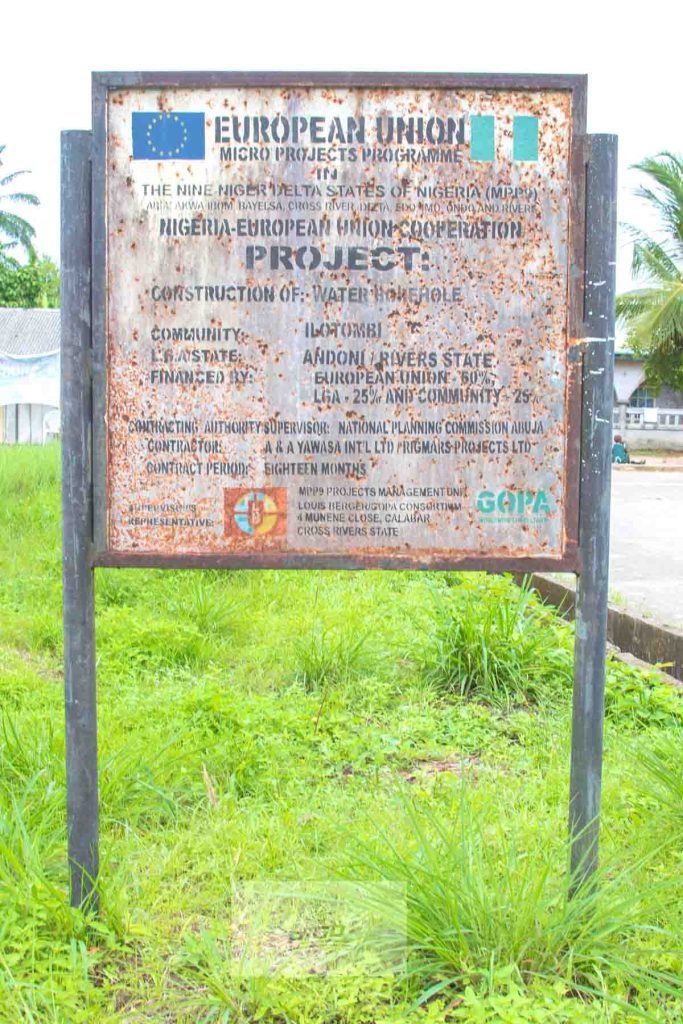Wow! This can be one particular of the most useful blogs We have ever arrive across on this subject. Basically…

Courtesy Visit and Community Engagement in Ilotombi, Andoni LGA, Rivers State.
According to the latest Climate Vulnerability Index 2021, nine out of the top 10 world’s most vulnerable countries are in Sub-Saharan Africa. Droughts, floods, and irregular rainfall patterns are frequent occurrences, and their impacts are amplified by existing social and economic vulnerabilities. These include deep rural poverty, limited government capacity to respond, and exposure to additional environmental shocks.
Climate change is a growing concern, posing a significant threat to these already fragile ecosystems. Increased rainfall variability is projected, potentially leading to more frequent, intense droughts and floods. This magnifies the existing risks associated with climate hazards, creating a severe problem for these developing countries.
Rural communities in developing nations like Nigeria are more susceptible to climate change due to their limited adaptation capacities. This vulnerability stems from a combination of factors: high levels of poverty, limited financial resources for adaptation, weak institutions, and low GDP per capita. Consequently, the impact of climate change is often more severe in these rural communities.
These communities often bear the brunt of environmental degradation and climate change, despite contributing minimally to the global climate change crisis. Sustainable development initiatives must be prioritized to ensure the empowerment of rural communities through investments in climate-smart agriculture, renewable energy access, and improved infrastructure.
Interestingly, the forests in Nigeria’s Niger Delta are mostly managed by local communities and serve as substantial carbon sinks. These forests can store up to 250 tons of carbon per hectare, contributing to the mitigation of climate change. However, Nigeria’s biodiversity continues to face existential threats as habitat loss is an increasing concern in Nigeria today, mostly driven by deforestation activities, urban expansion, agricultural intensification, and infrastructure development projects. The World Bank estimates a staggering annual loss of over 450,000 hectares of forest cover in Nigeria. Protecting communities with these rich forest covers and including them in conservation initiatives is essential for effective environmental management.
In May 2024, a field visit was conducted by Prime Initiative For Green Development to Ilotombi community, Andoni Local Government Area, Rivers State, Nigeria. Ilotombi Community boasts of extensive mangrove forests, remarkable biodiversity, and a wealth of rare flora and fauna. Notably, this community acts as a steward of this rich environmental heritage, haven protected it for centuries.
The community Chiefs, elders, and members of the Community Development Committee were present to receive the team from Prime Initiative For Green Development and took us on a reconnaissance walk around the community. Upon arrival at the Ilotombi community, a delegation of the community leaders welcomed our team. This group comprised the Chiefs, elders, and members of the Community Development Committee. They warmly welcomed us as we all embarked on a guided reconnaissance walk through the community.
The Ilotombi community is truly enriched with a vast expanse of natural vegetation, beautiful rivers, encompassing lush forests and vibrant mangrove ecosystems. The team from PIGD engaged in insightful conversations with these community leaders and these discussions were centered on their crucial role of preserving these natural resources and the delicate balance they maintain within the broader ecosystem. Community leaders highlighted the presence of a rich wildlife within their forests, including elephants and a variety of rare and endangered species.
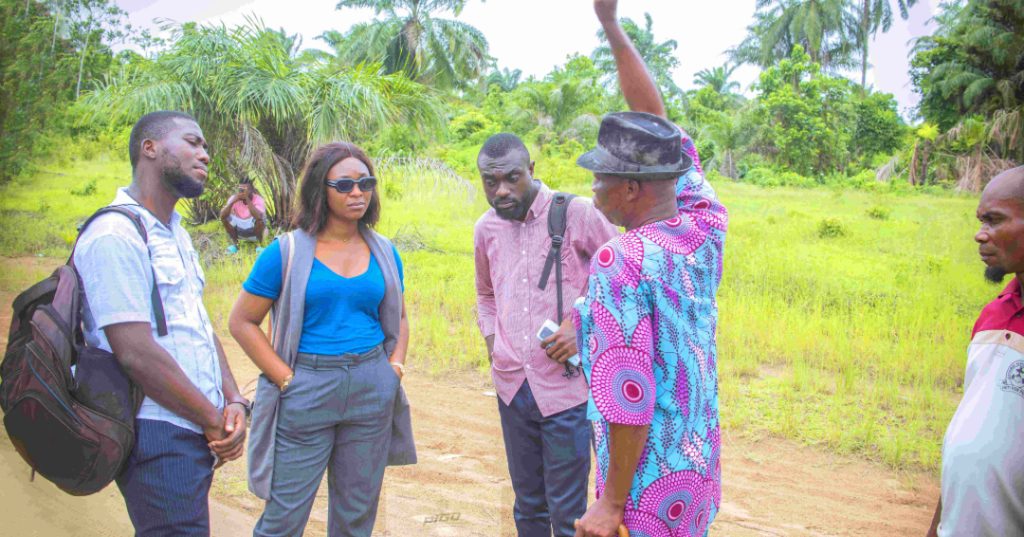
One major highlight of our visit to the community was getting to the community’s only healthcare center, a facility built in 1974. It was unfortunate to find the center in a deplorable state, with unfinished and abandoned sections. The only medical personnel available, a female nurse, recounted the many inadequacies and challenges at the health care center, making it difficult to provide basic health care to the Indigenous people of the community. There were a limited number of beds, a lack of emergency medical supplies, and a shortage of basic medical equipment. However, the most critical issue was the complete lack of access to clean water within the facility.
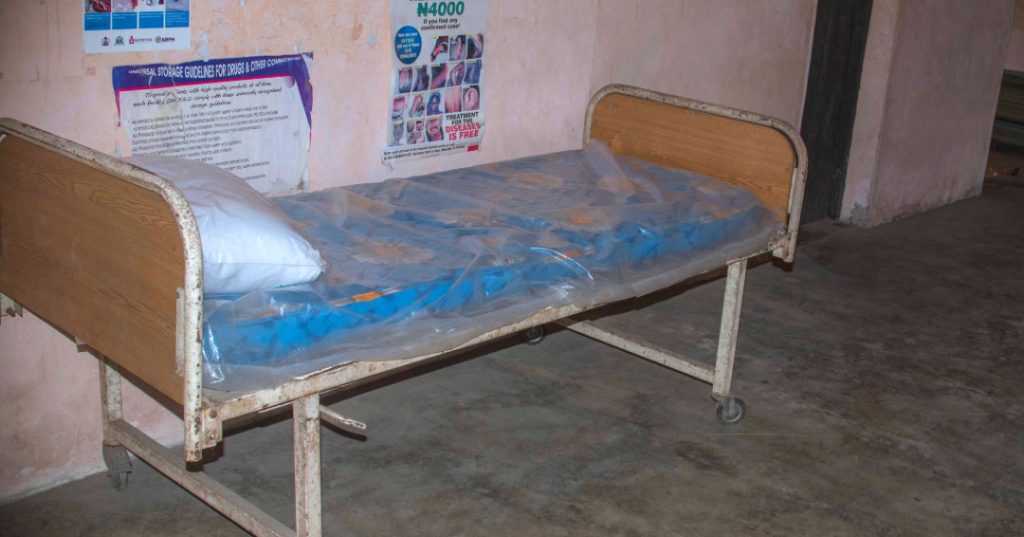
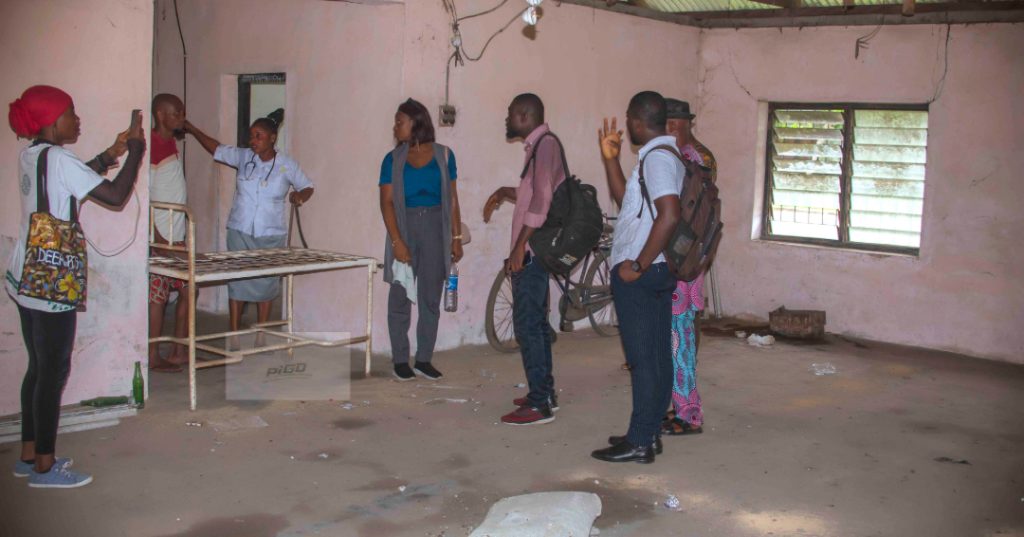
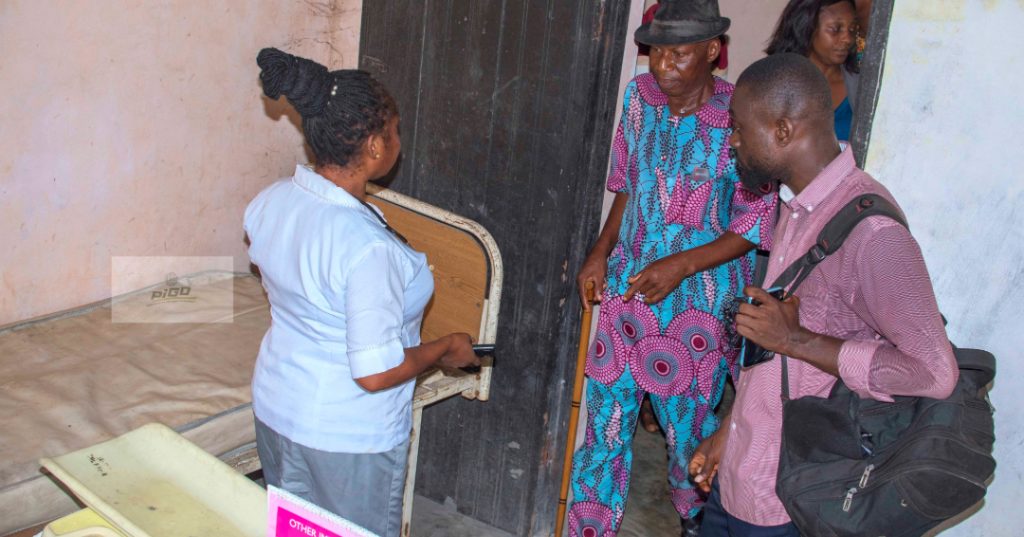
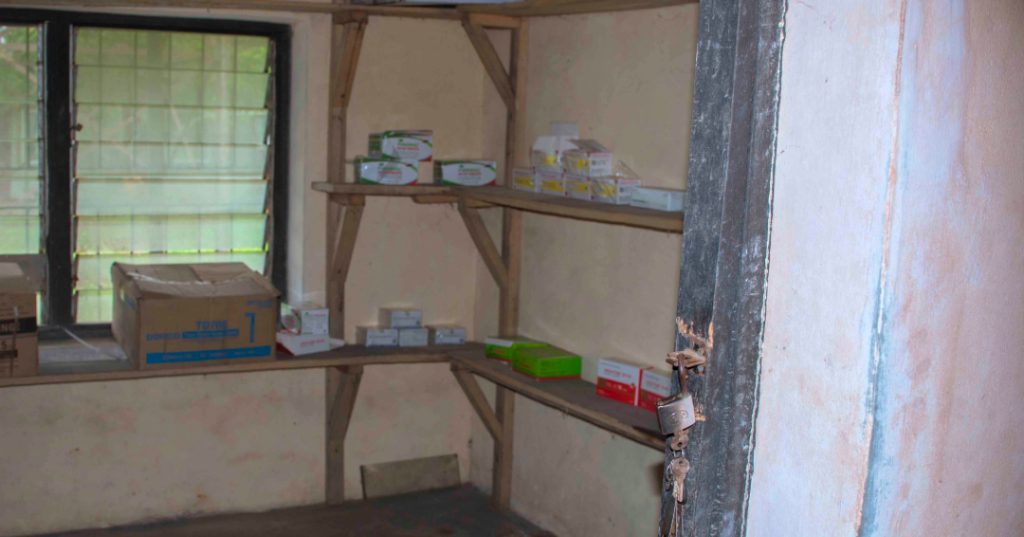
While a rusty, non-functional borehole (funded by the European Union in the early 2000s) was present on the premises, it was clear it had been abandoned for years. This forced the community, including the healthcare facility, to rely solely on water from local streams and rivers, a source highly susceptible to contamination and health hazards. Conversations with community leaders and the only medical staff revealed the devastating consequences of this situation. Diseases like cholera, dysentery, malaria, and typhoid fever were reportedly prevalent throughout the year, a direct result of the community’s limited access to clean water. This lack of basic sanitation further undermines the ability of the healthcare center to provide effective treatment and contribute to the constant wave of illnesses within the community.
According to a recent World Bank report, nearly 40% of households in Nigeria’s rural areas lack access to even basic water supply. This translates to millions of Nigerians living without access to clean water for drinking, sanitation, and hygiene. The lack of this fundamental resource poses a significant threat to public health, with waterborne diseases disproportionately impacting these communities.
The situation of rural communities like Ilotombi is definitely a reminder of the urgency for sustainable solutions. Without access to clean water, sanitation facilities, and proper hygiene practices, the potential for environmental degradation increases. Contaminated water sources can pollute waterways, impacting aquatic ecosystems and overall environmental health.
Addressing the water crisis demands a deliberate approach both nationally and globally. Rapid interventions are crucial; however, sustainable solutions are essential to ensure long-term access to clean water for future generations. This necessitates infrastructure development projects that promote a cleaner world and in turn provide safe water sources closer to rural communities. Additionally, promoting water conservation practices and hygiene education programs can empower these communities to manage their water resources more effectively.

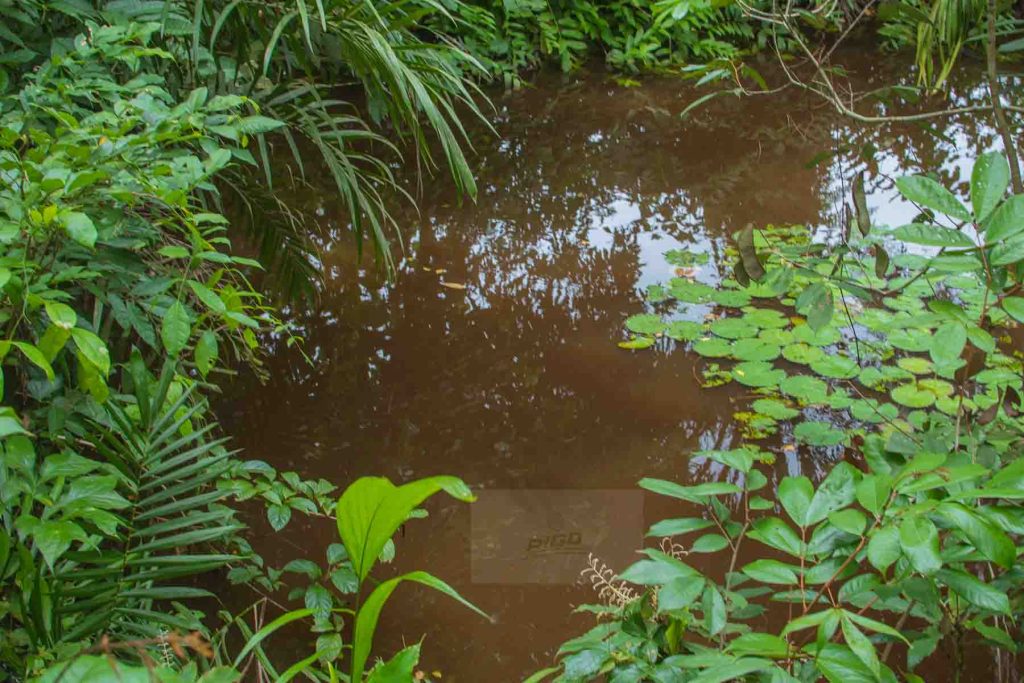
Ilotombi, with its unique environment and ecosystems, represents just one example of the countless rural communities in Nigeria facing critical environmental challenges. By prioritizing access to clean water and sanitation in these areas, we safeguard both public health and pave the way for a more sustainable future for Nigeria’s environment and its people.
